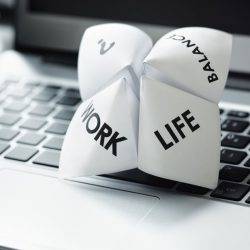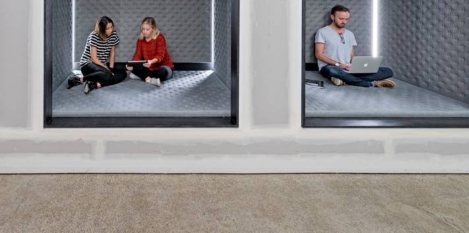March 13, 2019
Companies that adopt agile working enjoy improved financial performance, claims report
 Companies that embrace agile working and and a generally more flexible and responsive way of working enjoy a financial and operational competitive advantage over their rivals, according to new research from PA Consulting. Two thirds of the respondents said that their business model is at risk of fundamentally becoming outdated, with agile considered a key method for transitioning to a future-proof strategy. While agile is typically regarded by many as a method geared at streamlining operations, PA Consulting’s research suggests the approach could take things a step further. The consultancy conducted an international study among 500 executives of large companies across a range of sectors, asking them how they view agile working and what they see as the key factors for successful adoption. (more…)
Companies that embrace agile working and and a generally more flexible and responsive way of working enjoy a financial and operational competitive advantage over their rivals, according to new research from PA Consulting. Two thirds of the respondents said that their business model is at risk of fundamentally becoming outdated, with agile considered a key method for transitioning to a future-proof strategy. While agile is typically regarded by many as a method geared at streamlining operations, PA Consulting’s research suggests the approach could take things a step further. The consultancy conducted an international study among 500 executives of large companies across a range of sectors, asking them how they view agile working and what they see as the key factors for successful adoption. (more…)







 The recruitment and retention of manual and elementary service workers has become a significant challenge for UK employers, claims a new study. The research by Quinyx in collaboration with Development Economics and Censuswide, found that factors such as low pay and a lack of flexibility are key issue, resulting in nearly half (49 percent) of UK employers finding it difficult to recruit these workers, and the same percentage reporting challenges around retention. Issues with recruitment and retention were discovered to be most acute in industries such as hospitality, catering & leisure and retail. In addition, larger businesses (those with a workforce of 250 to 500) are more likely to face challenges compared to smaller-sized businesses. Regionally, businesses in London and the East of England are most likely to struggle to recruit workers into manual or elementary service roles. The findings come at a time when UK employers are expressing growing concern around access to manual and elementary service workers post-Brexit.
The recruitment and retention of manual and elementary service workers has become a significant challenge for UK employers, claims a new study. The research by Quinyx in collaboration with Development Economics and Censuswide, found that factors such as low pay and a lack of flexibility are key issue, resulting in nearly half (49 percent) of UK employers finding it difficult to recruit these workers, and the same percentage reporting challenges around retention. Issues with recruitment and retention were discovered to be most acute in industries such as hospitality, catering & leisure and retail. In addition, larger businesses (those with a workforce of 250 to 500) are more likely to face challenges compared to smaller-sized businesses. Regionally, businesses in London and the East of England are most likely to struggle to recruit workers into manual or elementary service roles. The findings come at a time when UK employers are expressing growing concern around access to manual and elementary service workers post-Brexit.




 We might think that an inability to absorb the vast amount of information generated by our fellow humans and their machines is something of a modern phenomenon, but we’ve always known we can have too much of this particular good thing. Distringit librorum multitude, wrote Seneca in the First Century. An abundance of books is a distraction.
We might think that an inability to absorb the vast amount of information generated by our fellow humans and their machines is something of a modern phenomenon, but we’ve always known we can have too much of this particular good thing. Distringit librorum multitude, wrote Seneca in the First Century. An abundance of books is a distraction.








 With the rise of both cloud-based technology and the worldwide gig economy, the last ten years of the 21st century have seen some near-revolutionary changes in workplace practice. Entrepreneurs everywhere have been more than happy to make use of these developments, taking advantage of the new business models these changes have brought. For example, IDG found that
With the rise of both cloud-based technology and the worldwide gig economy, the last ten years of the 21st century have seen some near-revolutionary changes in workplace practice. Entrepreneurs everywhere have been more than happy to make use of these developments, taking advantage of the new business models these changes have brought. For example, IDG found that 










March 7, 2019
A workplace chatbot might soon be one of your new best friends
by John Hildebrands • Comment, Technology